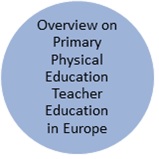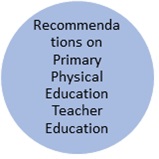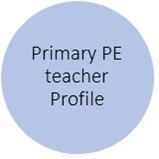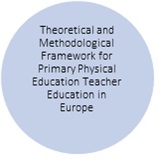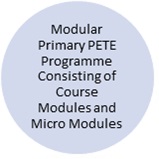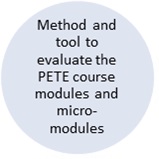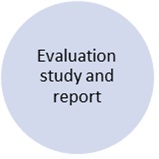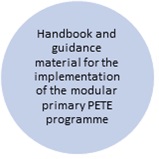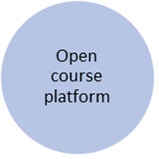Recommendations on Primary Physical
Education Teacher Education
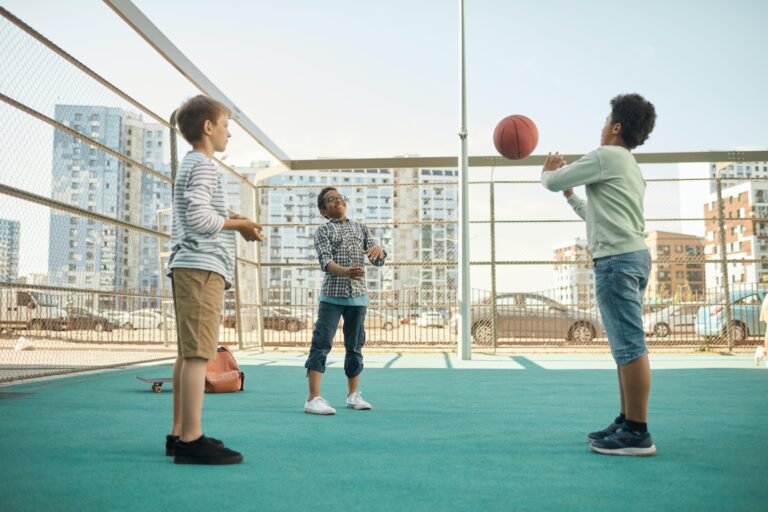
The recommendations made below result from an integration work of the recommendations arising from 3 sources of the project:
- the output of the Literature Review on Prime PETE;
- the output of the Delphi study;
- and the Learning Teaching and Training meeting 1 output.
Recommendation #1
Delphi Study – Rank top 3
- Advanced knowledge and understanding of the development of fundamental movement skills
- Knowledge about children’s overall development
- Knowledge of physical activity recommendations for children and young people
Literature Review
- An increase in physical education ECTS-load within the degrees preparing prospective physical education teachers is necessary;
LTT
Minimum compulsory ECTS for specific PE subjects (by increase the existing or including modules or teaching units), for both generalist and specialist teacher education.
Recommendation #2
Literature Review
- Future generalist teachers should consider the child’s natural disposition towards movement and perspectives of his/her cognitive development through movement, such as maintaining a certain level of well-being and health;
- An increase in physical education ECTS-load within the degrees preparing prospective physical education teachers is necessary;
- Primary physical education teachers should develop specialized knowledge, ability and competences related to physical education, to be able to teach effectively;
- Primary physical education teachers should develop specialized knowledge, ability and competences related to physical education, to be able to teach effectively;
- Advanced knowledge and understanding of the development of fundamental movement skills;
LTT
- Education courses for specialist and generalist primary school teachers must have subjects or modules that allow to analyse children’s overall development and, advanced knowledge and understanding of motor development and learning of children between 5 and 10 years and its implications for the teaching-learning of PE;
- Knowledge about children’s overall development.
Dimension 1 – Knowledge, Management and Creation
Recommendation #3
Literature Review
- It is crucial to propose advocacy for physical education to counteract biases towards other curriculum priorities;
- Education courses for specialists and generalist primary school teachers must have subjects or modules that able to justify the integration of PE in the multidisciplinary educational process of primary education (for instance by using multidisciplinary work groups).
Recommendation #4
Literature Review
- Teacher education programs convey a message consistent with the curriculum based on a broad and balanced curriculum and support new teachers to deliver physical education within an educational ideology.
- Well-designed school experiences should be included in teacher education programs to help participants to become familiar with the realities of teaching the curriculum and feel more empowered to teach physical education in a meaningful manner;
- Teacher educators should acknowledge, address and, where necessary, challenge students’ attitudes and beliefs to ensure that the key messages of their teacher education programs translate into teacher practices;
- Primary physical education teacher education should increase teachers’ knowledge about the national guidelines related to the physical education curriculum;
LTT
- Education courses for specialists and generalists primary school teachers must have subjects or modules oriented towards the knowledge of the PE curriculum in primary school and its impact over later learning experiences along all the schooling time and life time
- Knowledge of physical activity recommendations for children and young people
Recommendation #5
LTT
- Knowledge that allows to develop and put into practice the official curriculum of primary education in PE
Recommendation #6
LTT
- Subjects or Modules oriented to improve the teaching-learning competence focus on the pedagogical content knowledge (focused on how students are learning the PE contents, the key focus improve PE teaching in primary)
Recommendation #7
Delphi Study – Rank top 3
- Ability to plan and teach quality physical education lessons
- Ability to provide a positive and safe learning environment
- Ability to plan long-term and short-term physical education programs based on students’ developmental level and readiness
Literature Review
- Curricula enhancement is desirable, especially towards the creation of adequate learning situations and positive learning climates, as well as a towards competence- orientation in physical education;
- Understanding the elements of instructional quality is an asset for future physical education teachers;
- Among particular curricula contents, a special role is addressed to digitalization, inclusion and experiential education;
- Routines are an essential aspect related to group/classroom management;
- The design, management and processes of learning, teaching and assessment should include ungraded assessments in the area of physical education teaching experience, where possible. Mentoring by physical education teacher educators is crucial to this process as well as critical reflection and peer feedback from pre-service teachers;
- Self-reflection on aspects of learning from ‘practical’ modules towards the pre-service teachers’ future teaching should be an element in module assessments;
- Creating a positive attitude towards physical education with future generalist teachers is a necessary base to ensure later quality implementation.
- Ability to plan and teach quality physical education lessons
- Ability to provide a positive and safe learning environment
- Ability to plan long-term and short-term physical education programmes based on students’ developmental level and readiness
LTT
- Subjects or modules oriented to improve the teaching-learning competence focused on pedagogical content knowledge (focused on how students are learning the PE contents, the key focus improve PE teaching in primary)
- High rate of compulsory practical classes or practical experiences in context that allow contact with the specificity of PE teaching
Recommendation #8
Delphi Study – Rank top 3
- Capacity and commitment to support the learning and development of all students regardless of their ability levels
- Capacity and commitment to motivate, inspire learners and support their empowerment
- Capacity and commitment to create situations and climates in which learners increase their self-esteem and confidence
Literature Review
- The development of a teacher’s knowledge is an iterative process; anyone involved in the education of young people must be mindful that knowledge needs reviewing;
- Future teachers should reflect on their personality and dispositions, and it is recommended that future physical educators reflect on their prerequisites;
- Sports experiences at school are an opportunity for primary teachers to experience motor skills through content and activities that mobilize the psycho-affective and social areas and assist the individual growth of the teacher;
- Training courses for generalist teachers should providing adequate time to teach physical education teaching methods, and promote a holistic vision of this subject that affects physical, social, health development, as well as cognitive and emotional development;
- Physical education teacher educators should support pre-service teachers to get positive attitudes and to develop self-efficacy beliefs towards physical education;
- Acquiring psychological knowledge during studies strengthens the ability to deal with the job-related tasks of future physical education teachers. Therefore, Bachelor’s and Master’s degree programmes should integrate targeted measures to strengthen mental health at an early stage in the first training phase and take appropriate psychological content into account in the curriculum;
- Teacher educators should support a healthy work-related behavioural and experience development;
- Professional biography support is needed in the initial teacher training phase
- Emphasis should be placed on the health and wellbeing of physical education teachers by supporting active reflection about their job
Recommendation #9
Delphi Study – Rank top 3
- Capacity and commitment to the healthy development of primary school students
- Ability to communicate effectively both verbally and non-verbally
- Ability to promote ethical behaviour in learners and foster a culture of valuing diversity within the classroom setting
Literature Review
- There is an urgent need to reinforce the workload in the physical education area by changing the current curriculum matrix;
- It is imperative to reflect on sustainable physical education teaching models in the organisation of school groups;
- It is necessary and fundamental to involve all teachers in the sustainability of PE for students of the primary (Primary teacher + Teacher SS + Elementary and Secondary PE Teacher);
- There is an urgent need to profit from forms of collaborative work between teachers within the EA, which contribute to the regularity and increasing quality of physical education at this level of education;
- It is imperative to respect the local dynamics of each School Setting, in the context of the organisation’s culture as a promoter of PA;
- It is essential to clarify the educational purposes of each activity (PE and SS) and expand the benefits of its complementarity in favour of student learning;
- It is desirable to articulate with school groups/projects and local dynamics in the promotion of physical activity and sports development, in a global logic of social promotion of a Motor Culture;
- It would be useful to encourage teachers to engage with a more collaborative teaching approach that takes into account the contribution of Physical education and the Physical education teacher in the entire educational process;
- There is a call for a standards-based approach to beginning teacher standards to improve the status of physical education both in university and school contexts and to allow accountability and quality assurance;
- In the preparation of future Physical education teachers, a university seminar combining didactics with practical parts is recommended; the relation between knowledge of inclusive theories and practical examples is fruitful;
- The current aims should be reflection and modification of attitudes and partly also enlarging knowledge;
- There should be a focus on the demands placed on physical education teachers, learning to implement in case studies already during initial teacher education;
- Inclusive Physical education should be incorporated in the qualification of Physical education teachers;
- Friendly, supportive, and inclusive environments should be developed because they are likely to promote physical activity, especially for groups who are traditionally marginalized, such as girls or overweight children;
- Future teachers (and other school staff) are vitally important in creating this climate, by promoting and enforcing relevant rules and norms, promoting positive peer relationships, and celebrating diversity;
- Individualization, diversity, and special educational needs of the practical proposals that future physical education teacher educators should implement in teachers’ professional contexts, are highlighted as an area in which future training needs should be influenced;
- Training programs should be provided regularly for teachers;
- As future teachers, it is essential to propose group playful motor activities in the classroom aimed at discovering values such as collaboration and trust in others and mutually help;
- Teaching must be oriented towards learning and encouraging fair play and respect for the rules and others.
- as a promoter of PA
Recommendation #10
Delphi Study – Rank top 3
- Capacity and commitment to actively advocate for physical education in the school and beyond
Literature Review
- Teacher education should consider the importance of using effectively both ways of communication, meaning verbal and non-verbal;
- The use of the body as non-verbal communication should be encouraged in physical education lessons;
- Regular professional exchanges, and lesson observation are desirable;
- Collaborations between schools and universities should be established to allow bilateral (school – university) support for physical education students;
- Fruitful dialogue between future teachers and pupils is especially supportive to co- construct curricula or when it comes to inclusive physical education (it allows to consider the child’s view);
- Communication should be increased between teachers and parents, as well as between general teachers and specialist teachers of extracurricular physical activity;
- The use of social media and communication technologies may be beneficial for exchange between teachers acting as reflective practitioners.
